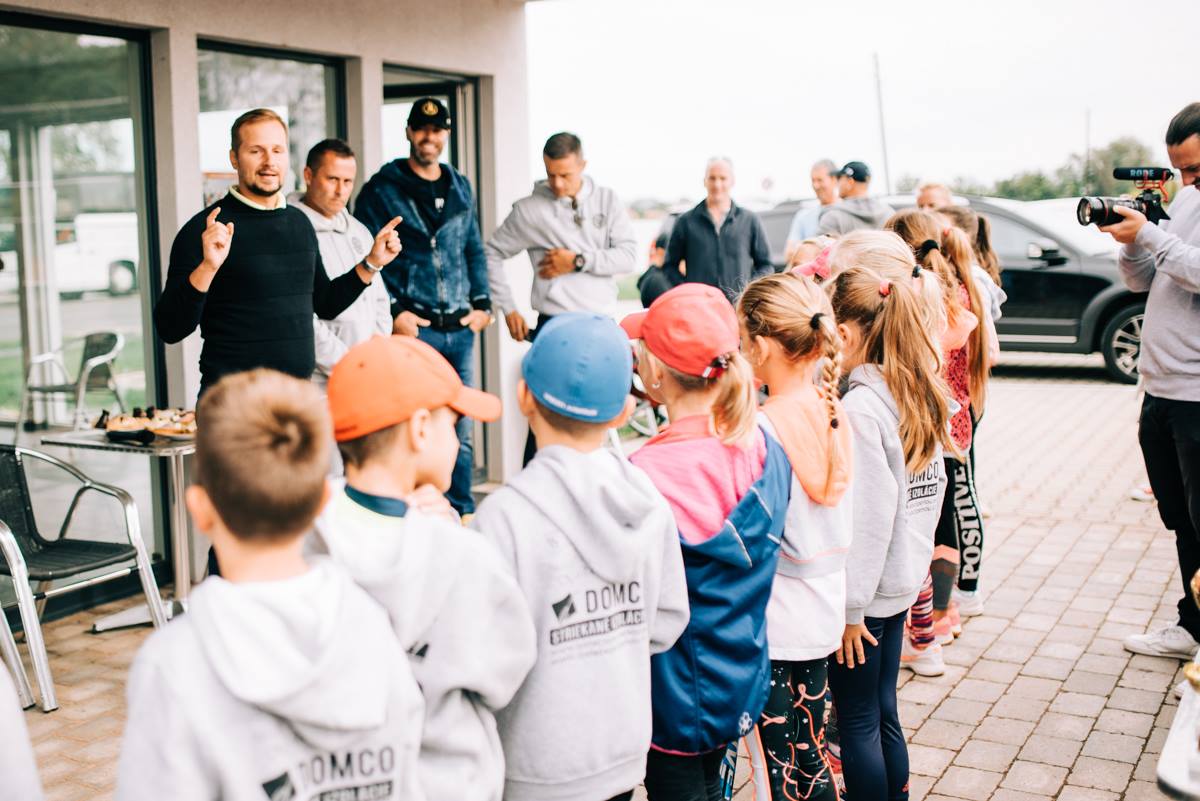The key is to ask the question at the beginning: Why am I putting my child into sports?
What do I expect from him/her? Do I want him to be active and not spend all day on the computer? Do I want him to socialize with friends? Do I want them to excel in their performance? What are my goals?
Your expectations will determine your response to their performance, and this, in turn, will affect the quality of your child’s motivation.
If the child is only participates because he or she enjoys being with friends and finds it fun, but the parents’ expectations are:
‘He should be playing at this level by now,’
‘You’re not trying hard enough,’
‘You can’t afford to make mistakes like that,’
‘If you played the way you know how, you’d win,’ etc., then you’re creating a disconnect between what the child wants and what you want. You’re pushing them into something they may not be ready for, and you’re bypassing crucial developmental stages. You’re taking them too early into the adult world and taking away the joy of play.
If you want a child to be able to systematically develop specific sports skills, it’s essential for them to have both motivation and discipline.
Let’s ask ourselves this question.
What child is going to hit a tennis ball against a wall for two hours a day?
Well, the one who enjoys it. They find pleasure in the activity of hitting the ball, and that enjoyment serves as the reward for playing.
Who made us parents go out and play when we were kids? Nobody did, we wanted to… It was fun.
Likewise, it must be a game and fun in sports. And you can only achieve this if the child is in a psychologically safe environment. The child is accepted into the group, has the opportunity to discover new skills, to try, to test, to create. The child makes lots of mistakes, learns from them and likes to correct and improve them.
However, if there is a parent or coach standing there constantly pointing out what he is doing wrong, the child may begin to worry.
This fear often comes from not knowing how children learn. Children need to be taught that mistakes are a natural part of learning and should not bring emotion into it, and certainly not expect that they should already be playing like this and like that. This should definitely be avoided when you talk to your child after the match.
It’s also a significant mistake to focus on whether the child won or lost after a performance. The objective should be to cultivate a mindset where the child enjoys the game, focuses on creativity, and is fully engaged in the process rather than the outcome. The exact opposite is if a child’s mind is preoccupied from the start with thoughts like:
“What if I mess this up?”
“What if I lose?”
The game hasn’t even started yet, they’re already scared.
If the performance is followed by a question from a parent about how could you lose this, the young athlete’s mind encodes even more fear, insecurity, and concern about letting their parents down.
By asking such subtle questions, the parent often fails to realize that they are taking away the most precious thing from the child, and that is the very joy of the game, the sense of accomplishment, of progress.
Let the children play, build a love for the sport at first, then gradually you can develop other qualities, discipline, or increase the demands on technical performance etc.
Motivation is the basic building block on which everything is built. How focused a child is, how fast he learns, how he can regulate difficult situations, all depends on his motivation.
See sports as a perfect tool for children’s development, an excellent preparation for life. Through sports, children learn self-motivation, discipline, resilience in overcoming obstacles, effective communication, and emotional regulation. These are practical life skills that sports offer, but they require sound guidance.
Guide your children so that they understand: whether they win or lose, my parents still love me just the same.
Less is more.
Let them play.
